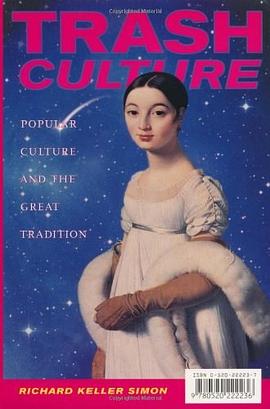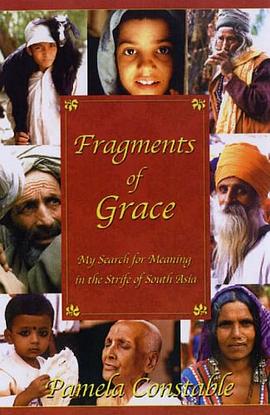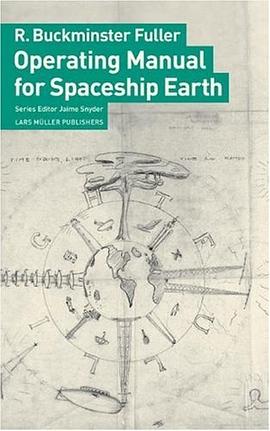

具體描述
Are there "natural laws" that govern the ways in which humans behave and organize themselves, just as there are physical laws that govern the motions of atoms and planets? Unlikely as it may seem, such laws now seem to be emerging from attempts to bring the tools and concepts of physics into the social sciences. These new discoveries are part of an old tradition. In the seventeenth century the philosopher Thomas Hobbes, dismayed by the impending civil war in England, decided that he would work out what kind of government was needed for a stable society. His solution sparked a new way of thinking about human behavior in looking for the "scientific" rules of society. Adam Smith, Immanuel Kant, Auguste Comte, and John Stuart Mill pursued this idea from different political perspectives. But these philosophers lacked the tools that modern physics can now bring to bear on the matter. Philip Ball shows how, by using these tools, we can understand many aspects of mass human behavior. Once we recognize that we do not make most of our decisions in isolation but are affected by what others decide, we can start to discern a surprising and perhaps even disturbing predictability in our laws, institutions, and customs. Lively and compelling, "Critical Mass "is the first book to bring these new ideas together and to show how they fit within the broader historical context of a rational search for better ways to live. Philip Ball majored in chemistry at Oxford University and received a Ph.D. in physics from the University of Bristol. He is now a writer and consulting editor for "Nature." He is the author of "Life's Matrix": " A Biography of Water"; "Bright Earth": " Art and the Invention of Color," which was nominated for a National Book Critics Circle Award; and "The Devil's Doctor." He lives in London, England, with his wife. Winner of the Aventis Prize "Critical Mass" asks the question, Why is society the way it is? How does it emerge from a morass of individual interactions? Are there laws of nature that guide human affairs? Is anything inevitable about the ways humans behave and organize themselves, or do we have complete freedom in creating our societies? In short, just how, in human affairs, does one thing lead to another? In searching for answers, science writer Philip Ball argues that we can enlist help from a seemingly unlikely source: physics. The first person to think this way was the seventeenth-century English philosopher Thomas Hobbes. His approach, described in "Leviathan," was based not on utopian wishful thinking, but rather on Galileo's mechanics; it was an attempt to construct a moral and political theory from scientific first principles. Although his solution--absolute monarchy--is unappealing today, Hobbes sparked a new way of thinking about human behavior in looking for the "scientific" rules of society. Adam Smith, Immanuel Kant, Auguste Comte, and John Stuart Mill pursued this same idea from different political perspectives. Today the purpose of applying concepts from physics to the social, political, and economic sciences is no longer to prescribe how society ought to be; instead, it is to understand the way it is, and how it evolves. In "Critical Mass," Ball looks at what this "physics of society" has to say about how people move in open or enclosed spaces; how they make decisions and cast votes, form allegiances, join groups, establish companies and communities. He examines the behavior of financial markets and reveals the hidden structure in networks of social and business contacts, and he explores the politics of conflict and cooperation from a scientific point of view. If physics can help us explain and understand human interaction and social behavior, can it also be used to anticipate and thereby avoid problems? Can physics be harnessed to improve societies, to guide us toward better decisions, and to make a safer and fairer world? Or is that merely another dream destined for the graveyard of utopias past? "A wide-ranging and dazzlingly informed book about the science of interactions. I can promise you'll be amazed."--Bill Bryson, chair of the 2005 Aventis General Prize Judging Panel "Philip Ball makes physics sexy again in "Critical"" ""Mass.""--Elissa Schappel, "Vanity Fair" "A prolific and accomplished science journalist . . . "Critical Mass" is] lively and wonderfully informative."--George Scialabba, "The ""Boston"" Globe""" "Fascinating . . . impressively clear and breathtaking in scope . . . substantial, impeccably researched . . . persuasive. For anyone who would like to learn about the intellectual ferment at the surprising junction of physics and social science, "Critical Mass" is the place to start."--Stephen Strogatz, "Nature""" ""Critical Mass" is an intellectual roller-coaster."--"The Economist" "A highly provocative work of popular science."--"Kirkus Reviews "(starred review) "In this wide-ranging investigation of pioneering attempts to explain social behavior by applying formulas borrowed from physics, Ball explains how maverick social theorists are now using discoveries about molecular motion and crystal formation to predict the behavior of various human groups, including crowds of soccer fans and clusters of pedestrians. Ball acknowledges that past 'political arithmeticians' have often dehumanized their subjects by adopting mechanistic assumptions about individual psychology and have sometimes legitimated totalitarian rulers by giving them a putatively scientific charter. But Ball's numerous detailed examples of the new social physics show how statistical models from physics can yield highly reliable predictions for large-group outcomes without abridging the unpredictable freedom of individual choice. These same examples teach that a consistent physics of society yields not an ideological straitjacket stipulating how people "should "act but rather a detailed portrait of how people "do "act. Because the new social physics can help managers and p
著者簡介
英國著名的科學與科普作傢。在牛津大學主修化學專業,在布裏斯托爾大學獲得物理學博士學位。已齣版十部科學與科普書籍,並在世界許多著名的科學雜誌上發錶文章和評論。目前在著名雜誌《科學》任特邀科學編輯,並經常通過媒體和在高等學府舉辦各種講座。
圖書目錄
讀後感
这是一本用物理学知识来解释社会学的书,即通过流体力学和概率论等来解释人类群体的行为模式。 一般,我们认为人类行为是不可预知的,其作为群体的行为也是没有规律的。不像物理学一样,只要给定初始条件,结果就是确定的--这就是科学原理。但是,本书就要颠覆我们的这种观点...
評分《预知社会—群体行为的内在法则》,英文原版名字是:“Critical Mass: How One Thing Leads to Another”,2004年出版的。中文版有两个:《预知社会》出版于2007年,《预知社会—群体行为的内在法则》出版于2010年。我看的是后一个版本。看了一大半,还没看文。 英文版的...
評分我是因为汪丁丁的推荐而买了这本书。 果然不出所料,根据汪老师的风格,读完这本书的感受和对此的预期基本一致。 精力旺盛的物理学家孜孜不倦地建立并修改一个又一个无聊的模型。 正如维特根斯坦而言,这些人便是典型的“游戏规则的旁观者”。 我就知道贝克尔的模型会被引用到...
評分如果你说你学经济学或者金融学的,那人们通常会认为你是精于计算的,如果你说你学政治学的,那么人们通常认为你想走仕途,但是比较例外的是,如果你说你学社会学的,人们通常会楞一下,然后问:“社会学是干神马的?” 这个问题如果你想从学社会学的学生那里得到答案的话无异...
評分2015年秋,26岁读,四星半。科普类,适合浏览或入门。最平滑最系统的复杂系统科普著作,用统计物理的观点介绍不同尺度的多体系统,从原子群到细菌群再到鸟群最后到人群,逻辑非常舒畅。复杂系统的里程碑工作都被一一介绍,相应的大牛和经典文献也被列出。如果你对复杂系统感兴...
用戶評價
相關圖書
本站所有內容均為互聯網搜索引擎提供的公開搜索信息,本站不存儲任何數據與內容,任何內容與數據均與本站無關,如有需要請聯繫相關搜索引擎包括但不限於百度,google,bing,sogou 等
© 2025 book.quotespace.org All Rights Reserved. 小美書屋 版权所有




















